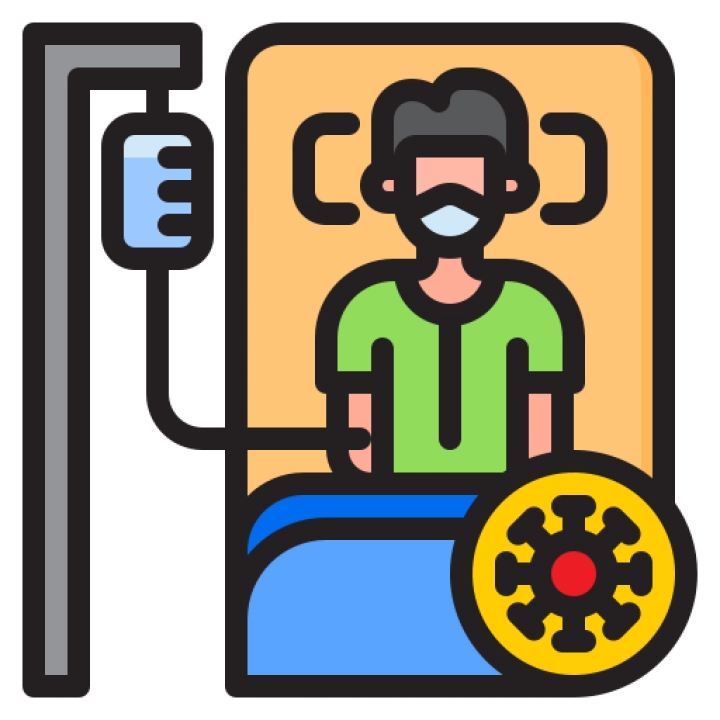College: Institute of Graduate Programs
This specialization provides a comprehensive understanding of the principles and practices of internal medicine nursing, focusing on the care and management of patients with chronic and acute internal medical conditions. Students will explore key topics such as pathology, patient assessment, treatment planning, and patient education. The specialization focuses on integrating theoretical knowledge and practical skills to prepare students for careers in medical-surgical, critical care nursing, and related fields.
Learning Objectives:
- Understand the basic principles of internal medicine nursing and its role in patient care.
- Develop skills in assessing and managing patients with internal medical conditions.
- Learn techniques for developing and implementing patient care plans.
- Explore the principles of pathophysiology and its application in nursing practice.
- Understand the impact of patient education and advocacy on improving health outcomes.
- Analyze challenges and opportunities in the field of internal medicine nursing.
- Develop critical thinking and problem-solving skills for addressing challenges in patient care.
Main Outline:
- Introduction to Internal Medicine Nursing
- Overview of internal medicine nursing, its history, and its significance in healthcare.
- Pathophysiology of Internal Diseases
- Basics of pathophysiology, including the study of disease processes and their effects on the body.
- Techniques for understanding and applying pathophysiology in nursing practice.
- Patient Assessment and Diagnosis
- Principles of patient assessment, including physical examinations and diagnostic tests.
- Techniques for accurate diagnosis and monitoring of internal medical conditions.
- Treatment Planning and Implementation
- Overview of treatment planning, including medication management and therapeutic interventions.
- Techniques for implementing and evaluating patient care plans.
- Patient Education and Advocacy
- Fundamentals of patient education, including promoting health and disease prevention.
- Advocacy techniques to support patients’ health needs.
- Ethics and Professional Practice in Nursing
- Overview of ethical and professional considerations in internal medicine nursing.
- Techniques to ensure ethical and professional conduct in patient care.
- Specialized Topics in Internal Medicine Nursing
- Principles of specialized topics, including cardiology, endocrinology, and gastroenterology nursing.
- Techniques for in-depth research on specialized topics.
- Emerging Trends in Internal Medicine Nursing
- Impact of emerging trends, like telemedicine and personalized medicine, on internal medicine nursing.
- Techniques for integrating new trends into nursing practice.
Assessment Methods:
- Clinical practice projects and patient care to assess practical skills.
- Written assignments and research papers to evaluate knowledge in pathology and patient assessment.
- Presentations and reports on treatment planning and patient education.
- Participation in group projects and nursing simulations.
Recommended Books:
- "Medical-Surgical Nursing: Assessment and Management of Clinical Problems" by Sharon L. Lewis, Shannon Ruff Dirksen, and Margaret M. Heitkemper.
- "Pathophysiology: The Biologic Basis for Disease in Adults and Children" by Kathryn L. McCance and Sue E. Huether.
- "Patient Education: A Practical Approach" by Sally H. Rankin and Karen Duffy Stallings.
Prerequisites:
Basic knowledge in nursing and medical principles is recommended. This specialization is suitable for students in nursing, healthcare, and related fields.
Main Duration:
Typically, this specialization lasts four academic years, combining lectures, clinical practice, and practical exercises.
Certification:
Upon successful completion, students may earn a degree in internal medicine nursing, depending on the program and institution.
Target Audience:
This specialization is designed for undergraduate and graduate students in nursing, healthcare, and related fields, as well as professionals seeking to enhance their skills in internal medicine nursing. It prepares students and professionals to excel in internal medicine nursing by utilizing theoretical knowledge, practical skills, and understanding emerging trends to deliver high-quality care to patients with internal medical conditions.


